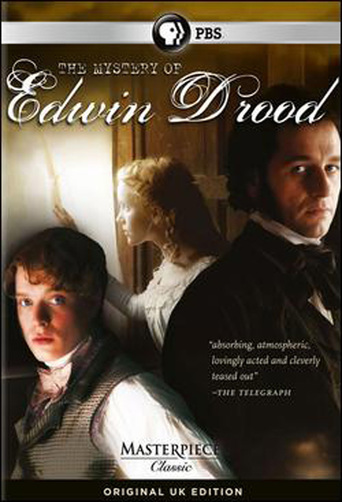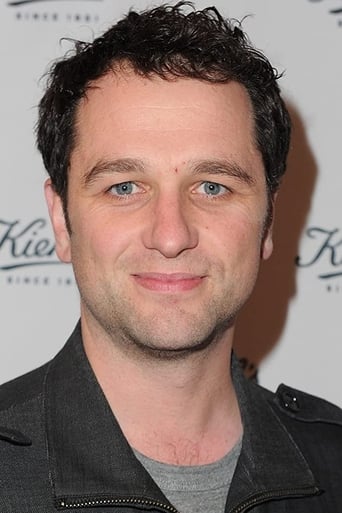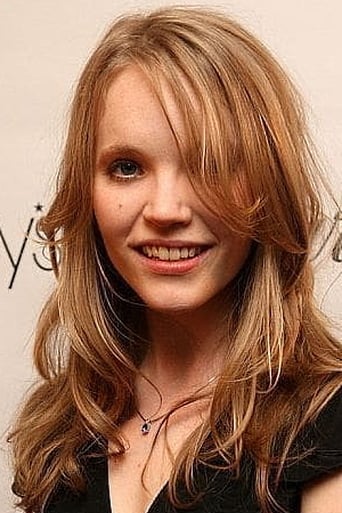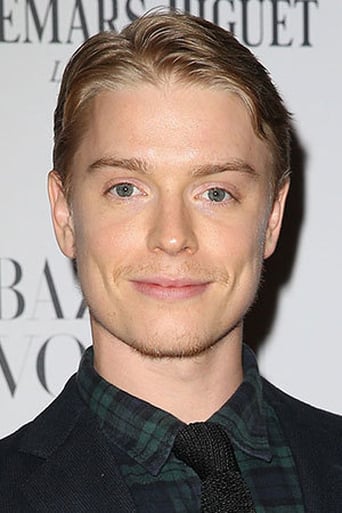

The Mystery of Edwin Drood (2012)
An exploration of Charles Dicken's unfinished work in which the mystery of the murder of Edwin Drood is examined.
Watch Trailer
Cast


Reviews
There are better movies of two hours length. I loved the actress'performance.
Fanciful, disturbing, and wildly original, it announces the arrival of a fresh, bold voice in American cinema.
A movie that not only functions as a solid scarefest but a razor-sharp satire.
All of these films share one commonality, that being a kind of emotional center that humanizes a cast of monsters.
"The Mystery of Edwin Drood" was Dickens's last novel, famous for being left unfinished at his death, so producing a film adaptation is always going to be a speculative undertaking, as nobody is quite sure how Dickens intended it to end, although there are a number of theories. The title character is a young man from the cathedral city of Cloisterham, a thinly-disguised version of Rochester. (The film was shot on location in that city). The plot revolves around the strange triangular relationship which develops between Edwin, his fiancée Rosa Bud, and his uncle John Jasper. Edwin has been engaged to Rosa since they were both children, as a result of provisions in their father's wills, but neither seems to have much passion for the other. Jasper, the opium-addicted choirmaster of Cloisterham Cathedral, is secretly in love with Rosa, although she does not return his love. A further development comes with the arrival in Cloisterham of the twins Neville and Helena Landless from Ceylon. In this adaptation they are of mixed race, although their racial origins are not indicated in the original book. Neville finds himself attracted to Rosa, and he and Edwin fall out with one another. Another important character is the clergyman Septimus Crisparkle. The "mystery" to which Dickens alludes in his title is the sudden disappearance of Edwin. It is presumed that he has been murdered, although no body is ever found. The novel in its unfinished state offers no definitive solution to the mystery, so the writers of this version have had to come up with their own. (I won't say what it is). The film was made for BBC television, and falls within the long British tradition of visually attractive costume drama, a tradition which is even longer on television than it is in the cinema. (Feature films of this type were rare before the late sixties and relatively uncommon before the eighties). It is a good example of ensemble acting so I won't single out any individual performances. Like a number of recent adaptations of the classics it is used to put over a modern perspective on history; the Landless siblings are used to raise some points about colonialism and racism in Victorian society. (Edwin's initial dislike of Neville is partly based on race prejudice). It is, of course, anyone's guess whether the new ending is the one Dickens intended; literary buffs may suspect that it is not. The film-makers have, however, at least come up with something that makes sense on its own terms and comes across as a seamless whole; it would be difficult for anyone not acquainted with the novel to guess which parts of the story are Dickens's own and which the invention of the scriptwriter. The film is required viewing for any Dickens enthusiast and an entertaining period drama for anyone else. 7/10
Yes, "Mystery" does vary in tone from other works by Dickens but not nearly to this extent. The whole movie plays like a sweaty dream induced by a night of heavy eating and drinking. It utterly lacks the feeling of concrete reality that Dickens somehow evokes even as he spins ludicrous tales.Not a single character feels like a real person with a real life beyond what appears on screen and a full range of emotions. There's never a hint that the choirmaster runs a choir, or that the lawyer has ever handled a case or that the schoolgirl has any studies.The very talented Matthew Rhys is wasted on a role with only two notes, hatred and self pity. But it's still the deepest role in the show. None of the other characters has more than one characteristic and many of them have none at all. Oddly, despite this lack of personality (or perhaps because of it) all of the characters are unlikable. There's no one to root for in the story.To make up for the lack of character, there is mood, lots of mood, hitting you in the face again and again with dream sequences and funny camera angles and music that is supposed to make us fearful in moments that are not scary to anyone older than 5.The production isn't even technically competent in a way you'd expect of the BBC. Rhys, who is great with accents and can surely do an English one, frequently reverts to his native Welsh. In one scene, they say the Lord's prayer as "Our Father, Who art..." rather than "Which art," which would have been used in Victorian England. It's a miracle a car did not drive through the background in one of the scenes.The worst adaptation of Dickens I have ever seen.
This recent BBC adaptation of Dickens' unfinished final work for me takes too many liberties with the tale. Not for the first time of late in a TV Dickens adaptation, one suspects the hand of political correctness rather than imaginative casting in having the Landless siblings played by black actors. It only serves to make the nascent love scene between Reverend Crisparkle and Miss Landless seem the more awkward especially in the context of the time in which it is set. While there is melodrama in the plot, a Gothic over-dramatisation is applied, especially when John Jasper "has one of his heads", a cue for unusual camera placements, distorted shots and mad-scene background music. It also disobeys the golden rule, which even Hitchcock acknowledged, of never using a flashback that lies. The invented ending, which plays on the title of the piece, made me wonder if the writer hadn't had a hookah or two of opium before putting pen to paper.As for the acting, I found some solace from the scenery-chewing of the leads in the supporting parts of Durdles, Brossard and young Deputy. No offence to the actress playing Rosa but one can hardly imagine her freckled, girlish demeanour inspiring the passions it does here.In short, I found this production overdone and undercooked at the same time and rather think the BBC for once failed the great writer in this particular version of this tale.
I haven't read The Mystery of Edwin Drood yet and it has now moved up the list of Dickens books that I want to read. I'd love to see where he left off and where the screenwriter had to fill in the gaps. From that standpoint, I have nothing to say about how this production was adapted.This was a brilliant production, however. Matthew Rhys was astounding - at the beginning of the first part his character had some moments of charisma (well, one, perhaps when he was singing to the choir and demonstrating flat and sharp keys) but this didn't last when he spiralled downwards into his obsessions and became a truly awful character but very sympathetic at the same time. Truly rounded.On an aesthetic note, some costume dramas have distractingly bad hair (I loved Sandy's Welch's Jane Eyre but Toby Stephen's hair was not good for example) - 'Drood' has none of this - I completely believed everyone's appearance and was not distracted by poor hairpieces for once (minor point but I wanted to praise that aspect!).Another notable point about this production was the sound. It was more creative than any other costume drama I can remember - some of the audio had me guessing whether they were original sound recordings from the church or a post-production echo chamber - I really couldn't tell the difference. Then the audio-montages that accompanied the more drug- induced scenes were creatively mixed and really took me into the aural world of 'Drood'.I absolutely loved this. Thank you once again, BBC.




